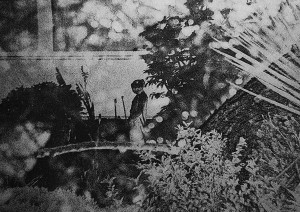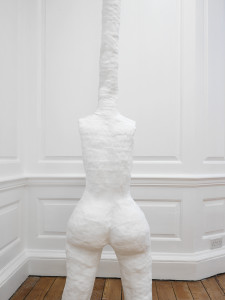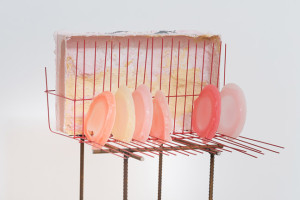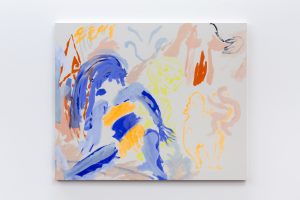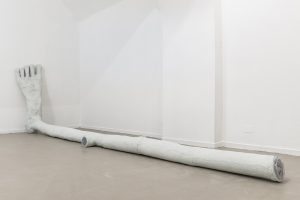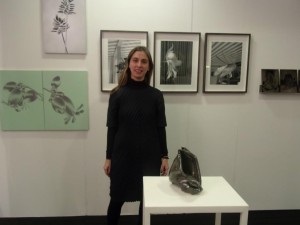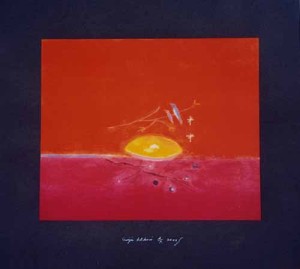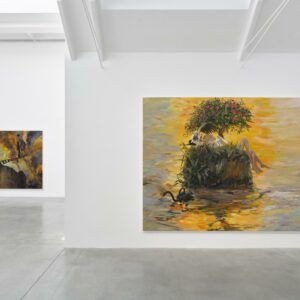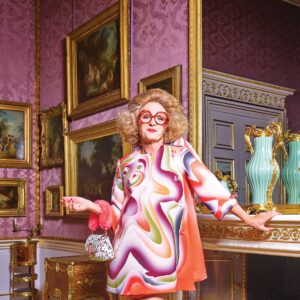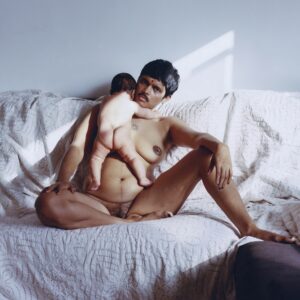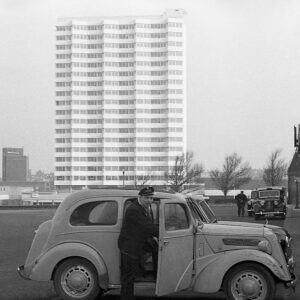This weekend visit London Art Fair which plays host to the launch of the 2016 Catlin Art Guide; plus the announcement of the shortlisted artists, being nominated, for the Catlin Art Prize.
Now in it’s 10th year the Catlin Guide compiles a list of around 30 recent BA/MA graduates, from arts schools around the UK, to provide an essential insight in to an area of contemporary art rarely seen, by a majority of it’s occupants, and offers a crucial platform for young artists to showcase work early in their career. A handful of the artists are then selected to take part in a group exhibition and given the opportunity to win a significant monetary award towards their future development.
The guide, in past years, has been an extremely diverse mix of contemporary art from a varied selection of universities, throughout the UK, giving a much needed view into the practice of students who might not encounter the same exposure as those studying in London.
Fad caught up with two of the artists, featured in the guide, sculptor Rebecca Ackroyd and photographer Joseph Ball, to find out their thoughts on the guide, art prizes and weather or not an artists geographic can affect their career.
How do you feel about being selected for the Catlin Guide and possibly the prize?
JB: It was a pleasant and unexpected surprise. I’m often worried my work is too self-serving or irrelevant, but to have someone approach you and wanting to share it with a wider audience is a huge compliment. It’s a big incentive to work even hard.
How do you think winning the prize would develop/effect your practice?
JB: I think I would become more prolific. I have a lot of ideas and unfinished work that is yet to find a form, it would be great to have that motivation and audience to tidy them up and start throwing more of my work out into the real world. The exposure would also bring more critique I feel, which is essential to avoiding complacency. I always want to be challenged.
RA: It would be great to invest back into my practice at this stage.
How would you spend the prize money if you were to win?
JB: I’d try and win really big at the 2p machine at my local arcade.
But seriously, that’s something I’d have to think about very carefully. There are a few projects I’d love to tie up and some speculative exhibitions in discussion with friends. In the unlikely case I win, I’d have to find something really important and worthwhile to me though. I volunteered at an animal sanctuary in Thailand recently and there’s a few environmental issues rearing their ugly head closer to home too, so maybe I could use the prize to make some work aiming to share these stories.
Do you think publications and prizes like the Catlin Guide, are an important part of nurturing and developing young artists?
JB: I do. I know from my own classmates that the art world is hugely competitive in terms of quality – which is great but also disheartening, knowing so many won’t get the exposure their voices deserve. Opportunities like the Catlin Prize are hugely beneficial in giving younger artists a chance to share their work, meet other artists in their position and begin to engage with the real world and general public!
RA: I think they provide an important platform for recent graduates to get their work seen. Also the prize money helps alleviate some of the struggle between earning a living whilst developing work.
Do you feel major art prizes, like The Turner prize, for example, are as relevant and as important as they once were?
JB: Perhaps not. It seems the internet has developed its own network of influential voices, that are willing to expose, praise and critique contemporary artists. The opportunities to communicate and spark conversations with others are now much larger, without the aid of institutions. I also think there’s a lot of interesting art and creative expression that would struggle to be considered for major prizes.
The Turner prize is obviously still very esteemed, with a great history for widening the discussion around contemporary art. I just think art is so multifaceted now, taking form everywhere from online CCTV cameras, satellite images and six second videos to galleries, bookshops and disused theme parks, as well as engaging with a myriad of different subjects and eras. When the opportunities to engage with art are so vast I think it would be a shame to value one institutions appraisal over anyone else’s, most importantly your own.
RA: They’re still important for artists l, but perhaps there’s less media controversy surrounding the turner prize now.
Do you feel your art school training has equipped you well for being a professional artist and is it a necessary stage in becoming an artist?
JB: Apart from skirting around the fact that making ends meet as a full-time artist will be tricky, university training does teach you a lot. It offers you a chance to immerse yourself in subjects you are passionate about, experiment with processes you didn’t know existed and meet a lot of like-minded people that you just might end up calling friends. I feel that network is very valuable; I know I have collaborators within reach and minds willing to bounce ideas around.
I would not consider it “a necessary stage in becoming an artist” at all though. I’m in a position of privilege to be able to invest three years of my life learning about art and photography, in a high-quality, comfortable setting. That doesn’t really qualify me as an ‘artist’ though – I have just engaged in academia to learn more about a subject I’m interested in. No ones creativity should be excluded on the grounds that they don’t have a qualification in it. Perhaps it would be better to remain undeterred by the canon, trends and art-speak that school can instill.
RA: It definitely helped me learn to take risks in my practice and push my work in a way that I otherwise probably wouldn’t. It depends on the artist though, for me it was a useful time away from the publicity of the gallery space.
With the cost of being an artist constantly increasing do you think that it is much more difficult to exist and work as an artist and is being an artist becoming an endeavor of the privileged?
JB: This is hard for me to answer, as I have no point of reference of another time to “exist and work as an artist”. There are definitely expensive choices artists can make – university is one, moving to a major city would be another. I’d agree that many privileged people probably take this route. Whether their work is of any worth can only be judged on an individual basis. I’m sure for every vapid, disconnected piece by a privileged artist there is one that has something important to say in an engaging way. I guess the issue is that the privileged tend to cultivate and perpetuate a privileged culture, whereas those who have to invest more time in working and surviving day-to-day will struggle to find recognition and investment from that culture, that would allow them to focus on art, gain exposure, etcetera.
The idealist in me wants to believe that with technology becoming more ubiquitous and internet access and quality increasing world wide there are more underrepresented voices being taken seriously than ever. There are less gatekeepers online and many ways to communicate your art, not strictly controlled by the perceived ‘privileged’. I know however that there are still countries that suppress expression, people who can’t afford or choose not to use it and those that simply won’t have the time to express themselves as they’d like…
RA: With the rise in tuition fees and studio prices in London it’s definitely a less attractive option. There’s much more emphasis on art as a ‘career’ now whereas before it wasn’t really seen as an option. I’d hope that if someone was genuinely interested they’d still pursue it, whatever their background.
As an artist do you think it is necessary/important to work in a major city?
JB: Cities definitely have many benefits for artists, notably the concentration of creative opportunities and diversity of audience. However I’m yet to find one I would really love to live and work in. I hate not being able to breathe and the pressure to meet costs of living would be slightly soul destroying. I do enjoy a dose of the overwhelming noise, smells and sights every now and then, and they can be exhilarating places to photograph or exhibit – I just don’t see myself being happy permanently based in one.
RA: Not always, you can get much more space outside of London and it’s much cheaper to live.
Do you draw a lot of influence from outside the visual art world and if so where?
JB: Absolutely, I find inspiration in a wide array of music, so much so that I plan to experiment more with sound in the future. Appropriation art and collage has interested me so artists like Brian Eno, Romare and MF DOOM (+ hip-hops entire culture of sampling) resonate with me. The idea of reworking existing material and concepts, already loaded with meaning, into new contexts is something I enjoy experimenting with.
RA: Music plays an important role in making my work, also I read a lot of fiction.
Where do you ideally see yourself in 5 years time?
JB: I can barely predict next week, let alone five years. As long as I’m still learning, challenging myself creatively and able to ride my bike, I’ll be happy. It would be great to be living near the sea again too.
RA: In the studio.
All the details on the Catlin Guide and Prize can be found HERE.
